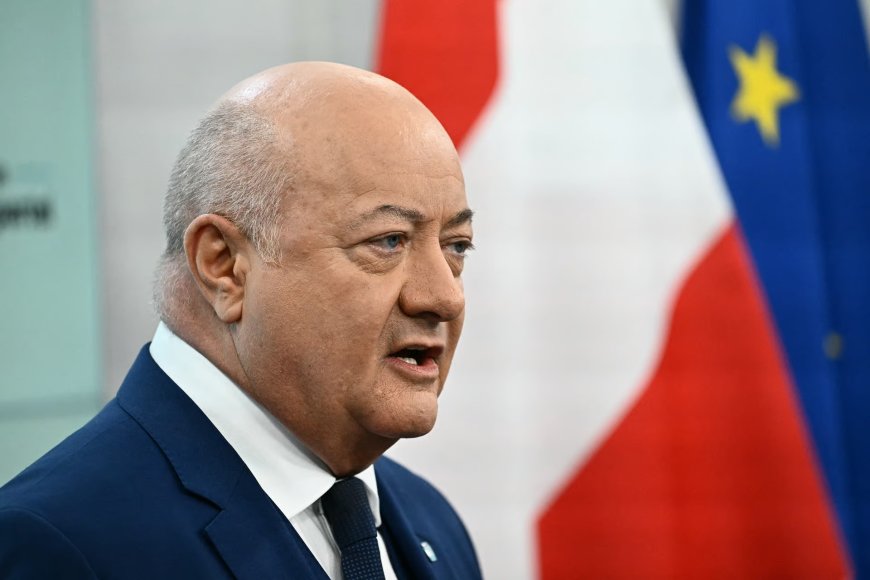Austria’s Mainstream Parties Form Coalition Government, Sideline Far-Right FPÖ After Record Negotiations
Austria’s mainstream parties, ÖVP, SPÖ, and Neos, form a coalition government after five months of negotiations, sidelining the far-right FPÖ. Learn about the new leadership, policy agenda, and the challenges ahead.

After five months of political deadlock, Austria’s conservative People’s Party (ÖVP), center-left Social Democrats (SPÖ), and liberal Neos have reached a coalition agreement, marking the end of the country’s longest-ever government formation process. The deal, which still requires approval from Neos’ grassroots members in a vote on Sunday, prevents the far-right Freedom Party (FPÖ) from taking power despite its victory in last September’s election, where it secured 28% of the vote—the largest share of any party.
The new government will be led by ÖVP leader Christian Stocker as chancellor, with SPÖ’s Andreas Babler serving as vice chancellor. The coalition’s proposed agenda, set to be unveiled on Thursday, focuses on budget consolidation and social reforms, aiming to strike a balance between conservative and progressive policies. This agreement represents a significant compromise among Austria’s mainstream parties, driven by growing economic concerns and pressure from President Alexander Van der Bellen to break the political impasse.
A Rocky Path to Coalition.
The road to this coalition was fraught with challenges. The FPÖ, led by controversial figure Herbert Kickl, initially attempted to form a government after its electoral success. However, policy disagreements with the ÖVP, particularly over economic policy and the control of key ministries, led to the collapse of negotiations. ÖVP State Party Chairman Karl Mahrer publicly criticized Kickl, calling him a "safety risk" and blaming him for the failure of talks. Kickl, known for his Eurosceptic and Russia-friendly views, has been a polarizing figure in Austrian politics.
Kickl dismissed the new coalition as a "coalition of losers" and has called for fresh elections, arguing that the FPÖ’s electoral mandate has been ignored. However, the ÖVP, SPÖ, and Neos have moved forward with their agreement, emphasizing the need for stability and economic reform in the face of rising inflation and other economic challenges.
A Balancing Act: Conservative and Progressive Policies.
The coalition’s agenda reflects a delicate compromise between the conservative ÖVP, the center-left SPÖ, and the liberal Neos. Key priorities include budget consolidation to address Austria’s fiscal challenges and social reforms aimed at addressing inequality and improving public services. The coalition partners have described their agreement as a pragmatic solution to Austria’s political and economic challenges, though critics argue that the compromises may dilute the impact of their policies.
The inclusion of Neos, a pro-business liberal party, in the coalition is seen as a significant shift in Austrian politics. Neos’ support for market-oriented reforms and its emphasis on transparency and modernization have influenced the coalition’s agenda, particularly in areas such as education and digitalization.
A Blow to the Far-Right FPÖ
The formation of this coalition represents a significant setback for the FPÖ, which had hoped to capitalize on its electoral success to enter government. The party’s exclusion from power underscores the reluctance of Austria’s mainstream parties to collaborate with the far-right, despite its growing popularity. The FPÖ’s controversial positions on issues such as immigration, the European Union, and Russia have made it a divisive force in Austrian politics, limiting its ability to form alliances with other parties.
What’s Next?
If the coalition agreement is approved by Neos’ party base in Sunday’s vote, the new government is expected to take office next week. The coalition faces significant challenges, including addressing Austria’s economic concerns, managing public discontent, and navigating the complexities of a three-party alliance. The success of this coalition will depend on its ability to maintain unity and deliver on its promises in a politically polarized environment.
For now, Austria’s mainstream parties have succeeded in keeping the far-right out of power, but the FPÖ’s strong electoral performance suggests that it will remain a potent force in Austrian politics. As the new government takes shape, all eyes will be on its ability to govern effectively and address the concerns of a divided electorate.
 Kinyarwanda
Kinyarwanda
 English
English










































































